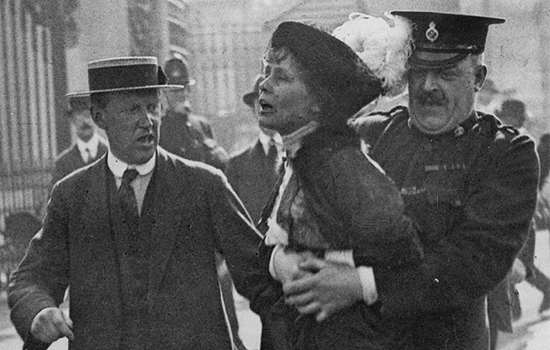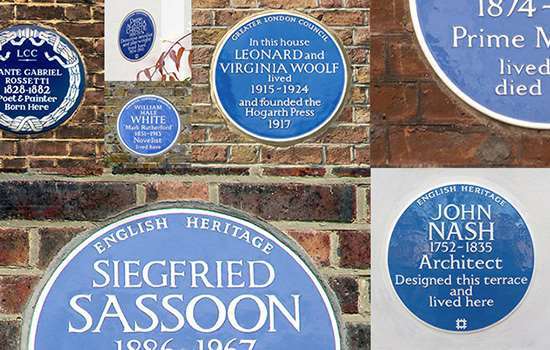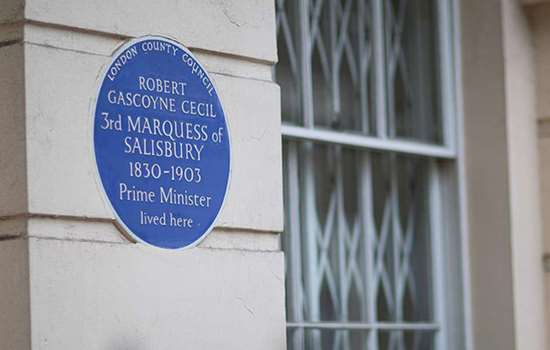Gerald Durrell (1925-1995)
Plaque erected in 2020 by English Heritage at 43 Alleyn Park, Dulwich, London, SE21 8AT, London Borough of Southwark
All images © English Heritage
Profession
Zoologist and writer
Category
Literature, Science
Inscription
GERALD DURRELL 1925-1995 Zoologist and writer lived here as a child
Material
Ceramic
The naturalist, zoologist and writer Gerald Durrell had an immense influence on public attitudes to animals in captivity and to the importance of zoos in the conservation of animals in the wild. His best-loved book, My Family and Other Animals (1956), vividly describes his family’s life on Corfu when he was a boy. A blue plaque at 43 Alleyn Park, Dulwich, commemorates the south-east London home where he spent part of his childhood.
London home
Gerald Malcolm Durrell was born in Jamshedpur, Bihar Province, India, on 7 January 1925, the youngest in a family of four children. He later claimed in Beasts in My Belfry (1973) that ‘At the age of two I made up my mind quite firmly and unequivocally that the only thing I wanted to do was study animals. Nothing else interested me.’
When his father died in April 1928, three-year-old Gerald left India with his mother, Louisa, for England, where his eldest brother, Lawrence, was already at school. They stayed at 43 Alleyn Park, Dulwich, a large, detached villa built in the 1880s or 1890s. Durrell’s father had bought the house two years earlier.
By all accounts the villa proved too large and expensive to run, and the Durrells left in 1929 or possibly late 1928.
Formative years
The family moved to Upper Norwood and then to Bournemouth before sailing for the Greek island of Corfu in 1935. There the young Gerald’s interest in animals and the natural world blossomed, encouraged by his mentor and lifelong friend, the local polymath Dr Theo Stephanides. This short but formative period in Gerald’s life ended when the family left Corfu in 1939, but was immortalised in My Family and Other Animals and later Birds, Beasts and Relatives (1969) and The Garden of the Gods (1978).
With war imminent, the family moved back to England, and the home-schooled Gerald found work at a local farm and stables. In July 1945 he became a trainee keeper at London Zoo’s Whipsnade Park, Bedfordshire, where he first began to think about captive breeding as the answer to protecting endangered species.
Animal Conservationist and Author
At the age of 21, on inheriting £3,000 from his father’s estate, Durrell left Whipsnade to pursue his ambition to finance and organise animal-collecting expeditions. Between 1947 and 1951 he made major expeditions to the British Cameroons in West Africa and British Guiana in South America, bringing back many wild animals for the major British zoos. Many more expeditions around the world would follow.
In 1951, when he had run out of money, his new wife, Jacquie, and his brother Lawrence encouraged him to try his hand at broadcasting and writing. His first 15-minute talk, on the hairy frog, was broadcast live on the BBC Home Service in December 1951, and many other programmes followed. His début book, The Overloaded Ark (1953), inspired by his first trip to the Cameroons, was the first of about 44 books, mostly autobiographical, that established him as a fresh and popular writer on the natural world. The phenomenally successful Corfu trilogy – My Family and Other Animals in particular – has been adapted many times for radio, stage, film and television, most recently in ITV’s The Durrells.
Jersey
Durrell’s childhood dream of founding a zoo of his own was eventually realised with the opening of Jersey Zoo on the Channel Island of Jersey in 1959. Four years later he also founded the Jersey Wildlife Preservation Trust (now the Durrell Wildlife Conservation Trust). From the start, the Zoo and Trust were dedicated to saving endangered animal species by breeding them in captivity and returning them to the wild, and provided training for conservation workers from across the world.
Durrell’s pioneering work on Jersey successfully combined displaying animals to the public humanely with effective involvement in field conservation. He ran the Jersey Zoo as an honorary director until his death in 1995.


